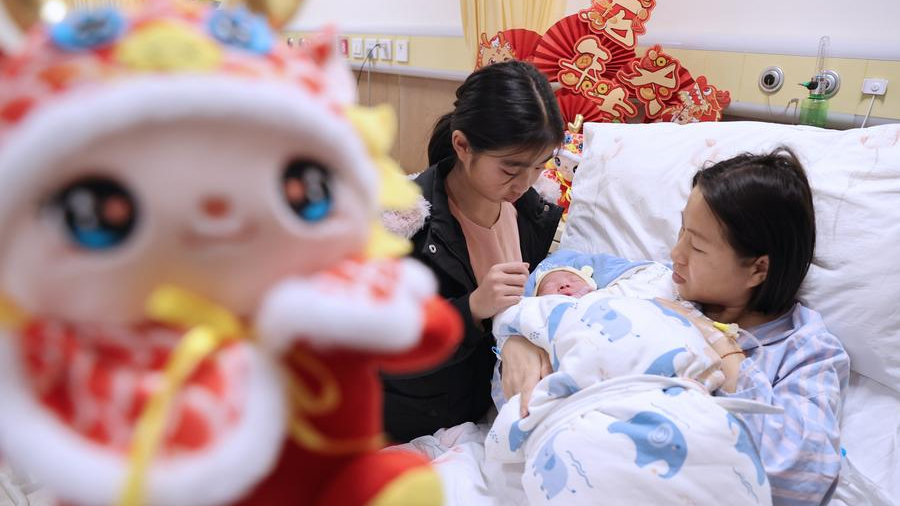
BEIJING - China on Monday introduced a series of new birth support policies aimed at building a society more conducive to raising children, as the nation confronts the profound demographic challenges posed by its rapidly aging population.
A directive from the State Council outlines 13 targeted measures to enhance childbirth support services, expand child-care systems, strengthen support in education, housing and employment, and foster a birth-friendly social atmosphere.
As one of the world's most populous countries, China faces the mounting challenge of a population of 1.4 billion aging at a rapid rate.
READ MORE: China unveils measures to support childbirth, parenting
Since 2022, China has entered a population decline phase, with people aged 65 or above comprising over 14 percent of the population, indicating a moderately aged society.
According to official data, nearly 300 million Chinese citizens are aged 60 or above -- a figure projected to surpass 400 million by 2033 and approach 500 million by 2050. By then, seniors are expected to account for nearly 35 percent of the nation's population.
In response to these demographic shifts, China has gradually relaxed its family planning policies over the past decade.
READ MORE: Dragon year expected to give 'baby bump' to falling birthrate
In 2013, China allowed couples to have a second child if either parent is an only child, and in 2016, it allowed married couples to have two children, phasing out the decades-long one-child policy. In 2021, it announced support for couples who wish to have a third child.


